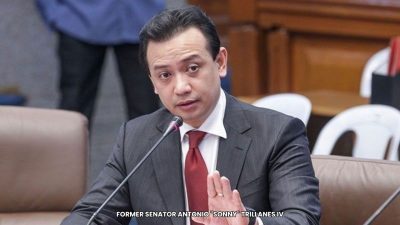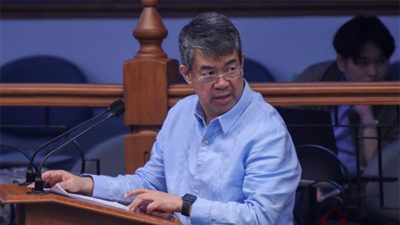MANILA – Invoking executive privilege to excuse Cabinet officials from a Senate inquiry is a constitutional right exercised by past administrations, including that of former President Rodrigo Duterte, a House leader said Friday.
House Assistant Majority Leader and Tingog Party-list Rep. Jude Acidre defended the decision of several Cabinet officials to skip a Senate hearing on Duterte’s arrest, emphasizing that executive privilege is a long-standing legal practice.
“Well, klarong-klaro po nasa… Konstitusyon ang pag-invoke po ng executive privilege (It’s very clear in the Constitution that invoking executive privilege is allowed),” Acidre stated.
He noted that even Duterte had previously barred his Cabinet members from appearing before Senate inquiries.
The second Senate hearing, led by Senator Imee Marcos, saw key officials absent after Executive Secretary Lucas Bersamin invoked executive privilege. Acidre stressed that the executive branch deserves the same respect that the House extends to the Senate, citing how lawmakers refrained from compelling Senator Ronald dela Rosa to testify in a separate congressional probe.
“Maganda sana kung humarap din siya sa quadcom… pero sa kadahilanan ho ng parliamentary inter-chamber courtesy, hindi ho natin in-insist po ‘yon (It would’ve been good if he had faced the quad committee, but out of courtesy, we didn’t insist),” he said.
He warned that disregarding executive privilege could disrupt the balance among co-equal branches of government.
“Mahirap naman po na sila naman sa pagkakataon ngayon ang ibabalewala o ‘di kaya e mamasamain ang pag-invoke ng isang co-equal branch (It’s unfair if the Senate now questions a co-equal branch for invoking executive privilege),” he added.
Presidential Communications Office Undersecretary Claire Castro reinforced this stance, citing legal precedents that support the Executive’s right to withhold information under specific conditions, including the deliberative process privilege, presidential communications privilege, and state secrets privilege.
ia/mnm







